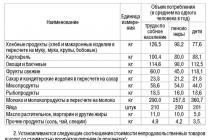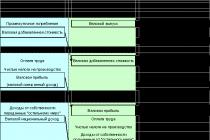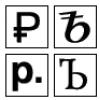Greece
Greece (Greek ??????), the official name - Hellenic Republic? Blika (Greek ???????? ??????????) - a state in Southern Europe . The population, according to estimates for 2010, is more than 11.3 million people, the territory is 131,957 km². It occupies the seventy-third place in the world in terms of population and ninety-sixth in terms of territory.
The capital is Athens. The official language is Greek.
About 98% of the population is Orthodox. Modern Greece - the heiress of culture Greece developing country Greece. considered the cradle of Western civilization. the birthplace of democracy and Western philosophy. basic principles of physical and mathematical sciences, theater and the modern Olympic Games. rich cultural heritage and geographical position make Greece one of the most visited countries in the world.
An industrial-agrarian country with a dynamically developing economy. The volume of GDP at purchasing power parity for 2011 amounted to 294.339 billion US dollars (about 24.543 US dollars per capita). Currency unit- Euro.
Such a policy is almost main reason the fact that the Greek side has recently been more actively advocating the development economic ties with Russia (which was demonstrated, for example, by the Greek business forum in Moscow at the end of May), as well as with China and European countries outside the eurozone. By the way, the latter criticize many of the actions of the EU and the IMF in relation to Greece.
It should be noted that many experts reasonably compare the current situation in the Greek economy with the situation in the late 1940s and early 1950s after the bloody civil war. But by the mid-1950s, the Greek economy was restored and began to develop rapidly. We note that thanks to industrial and infrastructure investments from the United States and Western Europe, as well as due to the active foreign economic policy of Greece itself. However, at that time it was also important politically, since Stalinist Albania, pro-Soviet Bulgaria and successfully developing Yugoslavia bordered on Greece ...
By the way, Greece joined the EU only in the mid-1970s, although quite a few local experts even then predicted that the country would lose its economic competitiveness within the European Union in the pan-European economy.
According to Anna Bodrova, an Investcafe analyst, the country's economy has been in a recession for at least five years. The Greek economy is currently undergoing painful and long-term processes, including spending austerity. The tax and social sectors are undergoing key changes. In her opinion, all this, in combination, increases the outflow of capital and business from the country.
To meet the increasing flow of tourists to Greece every year, the company's branches were established and operate in Athens, Chalkidiki, Paralia Katerinis, Kastoria and the island of Rhodes. And in 2006, the company's branches will be involved in the islands of Crete and Corfu (Kerkyra).
Climate in Greece
Greece is part of the Mediterranean climate zone - in summer there is almost no rain, while in winter there are downpours with winds. In general, the Greek climate allows you to relax here at any time of the year and in any state of health, if you plan your vacation correctly. Winter in Greece comes when the air temperature drops to 6 degrees Celsius, but this temperature lasts no more than 2 weeks. On average, the air temperature in winter is 12 degrees Celsius. The coldest month is February. Snow falls very rarely in winter, and it lasts no more than 3 days. However, the tops of the mountains are almost always covered with snow. As you know, in coastal cities, thanks to the sea, the climate is milder. On hot summer days and nights, you can enjoy a pleasant fresh breeze along the coast.
Money
The common European currency, the euro, is used throughout Greece. Many large and small enterprises accept credit cards such as: Visa, Diner's Club, MasterCard, American Express etc. Currency can be exchanged at banks, exchange offices or in hotels. When leaving Greece, the remaining euros can be exchanged for any convertible currency.
Brief historical outline
The geographical position of Greece was one of the determining factors of its historical and cultural development. The proximity to the regions where ancient civilizations originated, made it possible for the Greeks to enter into close cultural contacts with them. In the V-IV centuries BC. e. Ancient Greek civilization reached its apogee. It is no coincidence that this period of history is called classical. For the first time, Greek city-states lost their independence as a result of the victorious campaign of the Macedonian king Philip II. This was followed by an invasion by the Romans in the middle of II. BC. Until 1453, the Greeks were part of the eastern Roman Empire, later called the Byzantine Empire. The 450-year history of Turkish rule, tragic for the Greeks, began in 1453. AT early XIX. begins a national liberation war against the enslaving Turks. The result of a long and bloody struggle was the proclamation of an independent Greek state in 1834. The history of the 20th century is full of bloody events. The beginning of the 20th century was marked by the Balkan Wars (1912-1913), as a result of which northern Greece was liberated from the Turkish yoke. The First World War did not bypass Greece. Since 1917, the Greeks took part in hostilities on the side of the Entente. The country was among the winners, and thanks to this fact, Western and Eastern Thrace, the islands of Imvros and Tenedos were annexed to Greece, and the Greek government received the right to manage the city of Smyrni (a Greek city on the western coast of modern Turkey) and its suburbs. In this regard, in 1919, a revolution began in Turkey under the leadership of Kemal Mustafa in order to overthrow the Sultan and annul the results of the agreements. In order to defend their lands, the Greek government in 1919 declares war on Turkey. The Greeks lost this war, and in order to avoid further bloodshed, it was decided to move the Turks from Greece to Turkey, and the Greeks from Turkey to Greece. This event went down in history under the name "Asia Minor catastrophe". This is followed by the 2nd World War: 1941-1944. the country was occupied by German, Italian and Bulgarian fascists, Civil War 1946 - 1949 military dictatorship 1967-1974 Until 1973 the country was a constitutional monarchy. The last king, Constantine II, currently lives in London with his family. Since 2001 Greece has been a full member of the European Union.
The political system of Greece
Greece is a parliamentary republic with a presidential form of government. The head of state is the president (in this moment Karolos Papoulias) is elected by Parliament for a term of 5 years. Legislative power is exercised by a unicameral parliament of 300 deputies, who are elected for 4 years. The party that won the last election is the ruling party. The government is headed by the prime minister (currently Konstantinos Karamanlis), who is also the chairman of the ruling party (Nea Democracy). Elections are held every four years - right A citizen receives votes upon reaching the age of majority (18 years). Executive power in the cities is exercised by the "dimarchio" (mayor's office), and in the villages by the "kinotita" (village council). In Greece, there are many political parties of various directions. The largest of them are PASOK (Panhellenic Socialist Movement) and Nea Dimocracy (New Democracy) - a right-wing party. It should be noted that the Greeks are keenly interested in politics, they can discuss this or that problem for hours, and also desperately defend their political convictions. You rarely meet a person who does not belong to any party.
Greek cuisine
Greece is a southern country, so vegetables, fruits, various greens are available here all year round . Almost everything, with a few exceptions, is cooked in olive oil. National cuisine, characterized by a wide variety of dishes, is popular in many European countries. Fish occupies a large place in the diet of the Greeks. Meat and vegetables are usually stewed with seasonings - onion, garlic, pepper, mint, parsley, wine vinegar, etc. Of the meat dishes, the Greeks prefer lamb or pork skewers (suvlaki) or other meat dishes cooked on a spit or on coals. The Greeks are famous for their confectionery. First courses (soups, broths) are not very popular here. It seems to be due to the hot climate. However, in some taverns you can order broth or puree soup. Bean soup - "fasolada" is considered the cheapest and most everyday. Popular lentil stew - "fakes". Greeks with great pleasure eat rice soup in chicken broth with a beaten egg and lemon juice - "kotosupa me avgolemono". We also recommend you to try the beef soup - "vrasto". The Greeks do not favor tea either, and only when they catch a cold do they remember the existence of this drink. The traditional hot drink of the Greeks is strong aromatic coffee in an oriental way. Coffee is prepared without additives, it is customary to drink it in small sips, washed down with cold water. You can order coffee "vari glyco" - strong and sweet, "matrio" - less strong and with less sugar, "sketo" - medium strength and without sugar. In Greece, you will find a huge variety of dishes from fish and other inhabitants of the sea: squid, shrimp, crabs, mussels, lobsters, oysters, etc. Fried or baked fish is served with a delicious gravy of olive oil and lemon juice. According to Greek customs, a tavern visitor has the right to enter the kitchen and choose a fish or other product, which will then be prepared for him exactly as he wishes. Seafood on a special scale is usually prepared in special fish taverns - "psarotaverna", most of which are located on the sea coast. Wherever you are, look around, and we are sure that some snack bar, barbecue, pastry shop, coffee shop, cafe, bar or tavern will certainly be in front of you. It seems that the whole country is full of tables, and the owners are waiting with outstretched arms for you, so that you can appreciate their skill. Visiting a tavern in the evening, and even more so on weekends with friends or relatives, is a favorite pastime for the Greeks. As a rule, a relaxed atmosphere reigns in taverns. Here they drink beer or light wine, most often the famous retsina (wine infused with the resin of coniferous trees), which can be diluted with Coca-Cola, and, of course, Greek anise vodka - "ouzo". Opening hours of restaurants: from 12:00 to 16:00 and from 20:00 to midnight - some restaurants are open until 2:00 at night.
Holidays in Greece
In Greece, both religious and public holidays are celebrated, the most significant of which are declared non-working. this is Christmas, the baptism of the Lord, Easter, the Assumption of the Virgin, the day of St. Demetrius, the day of the Holy Trinity, the Greek independence day, the day of "oh" - the day of the official rejection of the alliance with the Italian fascists, etc. In Greece, all religious holidays are celebrated according to the new style. For example, Christmas in Greece is celebrated on 25 Greece, a developing country, and in Russia 13 days later - on January 7. Although in some cities in Greece there are churches that adhere to the old style. Each city celebrates the day of its patron. For example, in Thessaloniki it is Saint Demetrius Day (October 26). The official holidays in Greece are:
January 1 - New Year
January 6 - Epiphany (Epiphany)
Clean Monday is the first day of Great Lent after Maslenitsa.
March 25 - Independence Day, the biggest national holiday. On this day in 1821, the national liberation struggle against the Ottoman yoke began.
Easter, Holy Resurrection of Christ. Easter Monday is a non-working day.
May 1 - May Day, workers' holiday. Also celebrated as the Festival of Flowers.
May 9 - Mother's Day.
Holy Spirit Day
Feast of Pentecost (50th day after Easter)
August 15 - Assumption of the Blessed Virgin.
October 28 - Ohi Day, a national holiday. In 1940, on this day, the Greek people answered with a resolute "no" to the ultimatum of fascist Italy, which demanded that it be provided with several strategic points on the territory of Greece.
December 25 - Christmas.
December 26 - Christmas time (first day)
POLITICS OF GREECE (briefly for the tourist).
The state constitution was adopted on June 11, 1975. According to the constitution, the country is a parliamentary republic, so the head of government is the leader of the party that received the most votes, he is also prime minister .
In total, there are 13 administrative districts that use equal rights. Elections for local councils are held in each constituency. The districts themselves are divided into 54 self-governing nomes, which in turn are divided into several independent municipalities.
Standing apart is Aion Oros, an autonomy within Greece, more familiar to tourists, like Mount Athos. This autonomy is governed by a council of 20 Athos monasteries.
The head of state is the president, elected for five years by popular vote, with the possibility of being elected for one more term. The President is responsible for foreign policy may appoint the prime minister, dissolve parliament, but only with the consent of the Council of the Republic. In addition, he can veto draft laws, however, the bill can pass with a majority vote of Parliament.
Legislative power in the state is represented by a unicameral parliament , elections are held once every four years. Elections to Parliament are carried out by direct and secret ballot.
The right to vote is enjoyed from the age of eighteen. The government, headed by the prime minister, forms the majority in parliament. Parliament also nominates a president for a term of five years. The President and the government represent the executive branch. President of the State now Karolos, Prime MinisterAntonis Samaras .
Economy of Greece (short for tourist) .
Greece- industrial-agrarian state. In terms of purchasing power, the country is in 33rd place. The light and food industries are the most developed. One of the most developed industries is shipping, the Greek fleet is in 3rd place in the world in terms of the number of ships. The main ports of the country: Piraeus, Elefsis, Thessaloniki .
Industry , mainly centered around Athens (the Mecca of tourists) and Thessaloniki, with Athens accounting for a quarter of all manufacturing enterprises and half of all industrial workers in the country.
Agriculture most developed in Macedonia and the Peloponnese.
The main crops in local agriculture are wheat and barley. No less important for Agriculture potatoes, tomatoes, and, of course, olives. Citrus fruits, raisins and dried figs are also actively exported. A significant share in the region's agriculture is occupied by viticulture, and animal husbandry, the production of meat, dairy products and cheese, brings about 1/3 of the income from agriculture. Greek cuisine enjoys special love among tourists.
Greece can rightfully be proud of one of the largest merchant fleets in the world. The export of agricultural products brings a significant annual income to the country's treasury. Active trade with other states served as the basis for the development of warm relations with most countries of the world.
Tourism occupies an increasing place in local budget, about 10 million tourists visit the country every year.
In the 90s, the country began to actively develop tourism infrastructure, thanks to which in 2003 the growth of tourists exceeded 70 percent, and now the service for tourists is not only not inferior to the best Western counterparts, but in some ways even surpasses them.
The way of Greek life is calm, and at first glance it may seem serene to a tourist, but in fact the Greeks are very economic and hardworking, and idle idleness is not held in high esteem, these features are not immediately noticeable due to the open and friendly nature of the locals.
To the delight of tourists, there is a very low crime rate, which allows them to walk peacefully through all areas of cities and beaches.
Unfortunately, the crisis hit the country's economy hard, which caused the rating of Greece to fall as well. developed state, it was "transferred" from developed to developing. But tourists have benefited here as well, as holidays in Greece have fallen sharply in price.
However, the Greek economy appears to be starting to pick itself up from its knees. Already in 2014, according to the forecast, the budget deficit will decrease from 13% to 2.2%, and in 2015 it is forecasted to be 1% positive.
YouTube, Greece, politics
Greece today is a developed industrial state with stable exports and imports. Lately, however, a threat has hung over Athens. financial crisis. As a result, a huge default has formed in the country. The economy is starting to crack at the seams. But is it all that bad? This review will help you figure it out. GDP indicators Greece by years.
Economic development
In the country as of the mid-1990s, it was about $120 billion. So, per capita, its volume sometimes reached $11.5 thousand. At that time, Greece's GDP was growing quite rapidly. The rate of increase varied within 1.5%. On the other hand, back in the 1970s, similar figures reached 5%.
In 1960, the country's economy was booming thanks to high pace industrial production. Its volume increased immediately by 11%, while agricultural goods - by only 3.5%. Nevertheless, for a long time it was the agricultural sector that played the main role in replenishing the state treasury. Its share in Greece's GDP was up to 31%. In turn, the industry was allocated approximately 18% of the total. The remaining percentage remained for including tourism.
By the end of the 1990s, the unemployment rate naturally increased. The hardest hit was the female half of the population, who was employed only in the tobacco and textile industries, and partly in the service sector. The fact is that since 1996, the Greek authorities decided to carry out a series of reforms to support the agricultural and industrial sectors.
Since the beginning of the 21st century, the country's economy has become dependent on huge investment and debt infusions from the United States and the Eurozone. This contributed to the formation of a monopoly, a decrease in support for agriculture and the development of inflation. Gradually, Greece adapted to Western European integration, but not painlessly for ordinary citizens.
Economy indicators
Currently, Greece is considered one of the most developed industrial states of Western Europe. GDP per capita here varies within 26 thousand dollars. This allows Athens to remain among the top 50 countries in the world with the best similar indicators.
It should be noted that the average development of production complements government sector. In this way, the authorities stabilize the gross product. The country has developed trade, agriculture, banking system, stock exchanges. Most citizens are employed in such industries as textile, petrochemical, food, tourism, mining and metallurgical. Mechanical engineering and electrical production are developing rapidly. But the transport industry leaves much to be desired, especially for rail transport.

Greece's GDP over the years can be imagined as extremely unstable and vulnerable. Back in the early 2000s, its volume increased enviably to 5.2%. Negative jumps were insignificant, stability was noted. However, since 2008, the European economy has begun to forget what the real Greece is. The fall in GDP over the next few years averaged 6%. The negative maximum was recorded in 2011 - 7.1%.
As of 2014, the volume of GDP is just over $238 billion. Thus, in the ranking World Bank Greece occupies only 44th place, behind even Finland and Pakistan. One of the main problems of today's economy is the shadow sector, as well as the corruption of officials. The share of such "expenses" from the total budget is up to 20%.
Structure of the economy
The industrial sector is developed in the country by regions disproportionately. The most successful are considered to be the food, textile and light industries. The share of the employed population in this sector accounts for more than 21%. Metallurgical production also bears fruit every year. Following it in terms of profitability are the automotive and petrochemical industries.

Agriculture is gradually dying out due to the catastrophic lack of fertile land and low rainfall. For example: in Greece, arable land is only 30%.
As for exports, Greece is helped out by oil products, cereals, citrus fruits. By 2012, a sharp decline in demand for local goods was recorded. Export volumes decreased immediately by 22%. Until recently, Russia was considered the largest trading partner of Greece.
The number of visiting tourists is also gradually falling.
debt crisis
The dynamics of Greece's GDP is very dependent on external factors. Thus, the country for 2011 exceeded the budget by 40%. The fact is that a few years ago Athens borrowed about 80 billion euros. However, this amount could not bring the country's economy to the proper level. Soon the banks were talking about the approach of the financial crisis.

As a result, the country's economy began to burst at the seams. The only solution was to go into even more debt. The government started to sell state property, look for large investors. However, linking your future with an unstable financial plan no one wanted a country. Now the amount of debt exceeds the GDP of Athens by almost 2 times.
Regular default
2015 was marked by an even greater decline in the economy for Greece. Banks, factories began to close, large enterprises and companies, tens of thousands of people were left without work.
To solve the problem in the country, new authorities were formed. The main promise of the Prime Minister was the partial cancellation of the debt. At the same time, the Greek government behaved extremely aggressively and arrogantly. Naturally, world banks did not agree with such a formulation of the issue. Long negotiations have not been successful.

As a result, it was decided to leave the EU, but very soon this issue was closed. The European Union once again lent Athens tens of billions of euros for financial reforms, and Greece gladly remained in the coalition. Today, the authorities continue to struggle with a deep default.
Greek GDP figures today
By mid-2015, the country's economy strengthened slightly. According to experts, Greece's GDP grew by 1.5% by June. This exceeded even the most optimistic expectations by almost 1%.
In the third quarter of 2015, a slight increase of another 0.4% is also forecast.
aim new program European support for Greece is rising country's GDP in the short term. By 2017, it is planned to increase gross product from 2.7 to 3.1%.
Geographical position.
Greece is a state in South-Eastern Europe, located in the southern part of the Balkan Peninsula and on the adjacent islands (Crete, Rhodes, Samos, Euboea, Lesbos, Chios, Sporades, Cyclades, Kerkyra, etc. - over 3 thousand in total, of which about 200 are inhabited). It is washed by the Ionian, Mediterranean and Aegean seas. The length of the coastline (without islands) is about 15 thousand km, the land border (with Albania, Macedonia, Bulgaria and Turkey) is 1.170 km.
Area - 131.94 thousand square meters. km, incl. over 25 thousand sq. km falls on the islands.
Population - 11.35 million people. Population density 86 people. per 1 sq. km. 65.7% of the population lives in cities, the rural population is 34.3%.
National composition: over 90% - Greeks, the rest of the Turks (more than 140 thousand), officially recognized as a "Muslim minority", Albanians, etc. A significant number of immigrants from the countries of South-Eastern Europe, the CIS, the Middle East, South-Eastern Asia.
Language and religion. The official language is Greek (Modern Greek), the dominant religion is Orthodox Christianity. A small part of the population are Greek Catholics and ethnic Turkish Muslims.
administrative device. The country is divided into 51 nomes (prefectures), which are combined into 13 provinces corresponding to 10 historical and geographical regions: Greater Athens, Epirus, Thessaly, the Ionian Islands, Central Greece, Peloponnese, Macedonia, Thrace, the islands of the Aegean Sea, the island of Crete. A special administrative unit is the area of Mount Athos, which is an autonomous monastic region.
The capital is the city of Athens (the population of Greater Athens, including Piraeus, is 3.4 million people).
The largest cities: Thessaloniki - more than 1 million people, Patras - about 350 thousand people, Heraklion - about 300 thousand people, Volos - more than 130 thousand people.
National holiday: Independence Day - March 25 (anniversary of the beginning of the revolution of 1821, celebrated since 1838).
Political system. Greece gained national independence in 1830 as a result of the national liberation struggle of the Greek people in 1821-1829. against the Turkish yoke.
In accordance with the 1975 Constitution, Greece is a parliamentary republic. The head of state is the President, elected by parliament for a term of 5 years.
Parliament - unicameral, consists of 300 deputies elected for a term of 4 years by universal, direct and secret suffrage on the basis of a system close to enhanced proportional; parties need to overcome the 3% barrier to gain seats. Citizens who have reached the age of 18 have the right to vote.
Major political parties.
Panhellenic Socialist Movement (PASOK). Created in 1974, it combined various political currents (from social democratic to leftist). He advocates the slogan of democratic change.
New Democracy (ND). It was created in 1974 on the basis of the National Radical Union party (it united various political trends from centrist to moderate right-wing nationalists).
The Communist Party of Greece (KKE) was founded in 1918. From 1947 to 1974 it was illegal. Committed to the orthodox interpretation of Marxism-Leninism.
The People's Orthodox Assembly (LAOS) is a right-wing nationalist party led by Georgios Karadzaferis.
The Coalition of the Left Radical Forces (SYRIZA) was formed in 2004 on the basis of the previously existing Coalition of the Left and Progressive Forces, as well as a number of small groups.
Economy.
Greece is an industrial-agricultural country with a medium level of development.
Since January 2001, Greece has been a member of the economic and currency union EU.
The economic policy of the Greek government is determined by the urgent need to find a way out of the debt crisis that erupted in the country in 2010. In the face of the threat of a default (still persists), Athens had to resort to financial assistance from the outside. Together with the European Union and the IMF, a program was developed for lending to Greece for preferential terms until 2015
Greece's GDP in 2010 amounted to 230 billion euros (down 6.5%). The volume of investments decreased by 13%. AT current year GDP decline continued.
Inflation is 4.5% (2010).
Unemployment is growing at a fast pace, significantly exceeding the last year's figure (15.9% in the second quarter of 2011).
Industrial production. The share of Greek industry in GDP is 17.6%. The main industries are food, light, textile, chemical, metallurgical, construction, and mining. Electrical engineering, the electric power industry, some types of mechanical engineering, and the production of building materials are developing.
Greece also produces lignites, bauxites, nickel ore, magnesite, etc. The country's needs for liquid fuels are covered by 95% through imports. Since 1997, natural gas has been imported from Russia.
Agriculture. The share in GDP is about 4%. The area of cultivated land is 3.35 million hectares (about 30% of the entire territory of the country). Rural population owns small plots (average area - 4.8 ha). In total, there are about 800 thousand farms.
The main branch of agriculture is crop production (70%). The structure of crop production includes: cereals (40% of land), oil trees (20%), cotton (11%), fruits (8%), vegetables (8%), vineyards (3.5%), tobacco (1.5%). %). The share of animal husbandry is 30%.
Greece's agriculture fully meets the country's needs for grain, vegetable fats, vegetables and fruits, milk; 75% in meat, 70% in butter.
The agricultural policy of the EU hinders the development of traditional branches of Greek crop production. Yields of major agricultural crops in Greece are lower than the EU average.
Transport. Transport is one of the most dynamically developing sectors of the Greek economy. The Greek authorities are actively implementing the idea of turning the country into a powerful transport node in the region. About 60% of domestic freight and passenger traffic is accounted for by road transport. The modernization and construction of the road network is largely funded by the EU. The construction of the motorway along the northern borders (the Ignatia highway) and its branches continues. A bridge over the Corinth Canal was put into operation.
Rail transport belongs to the state. Weakly developed. Length railways- 2577 km, of which 1012 km are narrow-gauge.
There are several airlines operating in Greece. There are 40 airports, 22 of which are international.
The merchant fleet plays a significant role in the country's economy. Greek shipowners own about 3,100 ships (56% of the total tonnage of merchant fleets of the EU member states) and 18% of the world's merchant fleet (second place in the world after Japan). There are 2066 ships registered under the Greek flag with a total tonnage of 43 million tons. The main ports are Piraeus, Thessaloniki, Patras, Volos.
Highly developed trade, public catering, hotel business, tourism. More than 16 million foreign tourists visit Greece annually, incl. about 400 thousand Russians.
Foreign trade plays important role in ensuring the marketing of agricultural products and supplying industry with fuel, raw materials and supplies. In 2010, Greece's foreign trade turnover amounted to about 99.3 billion US dollars.
The main foreign trade partners of Greece in terms of exports are Italy, Germany, Bulgaria, Cyprus, the USA; imports - Germany, Italy, Russia, China, France. The EU countries account for more than 50% of Greece's foreign trade turnover.
The main import items are machinery and equipment, oil and oil products, foodstuffs, chemical products, finished industrial products. In trade with Russia, the import of hydrocarbons plays a leading role, the share of which amounted to 88.6% in the total structure of Russian goods delivered to Greece.
The main export items are products of the knitting and textile industries, mining (bauxites, nickel, manganese), agriculture (tobacco, raisins, olives and olive oil, citrus fruits, cotton). Greece's main exports to Russian Federation are clothes made of natural fur (Russia imports up to 95% of fur products produced in Greece), fruits and household chemicals.
Greece's foreign policy has a multi-vector nature, determined by the country's membership in the European Union and NATO, and its interest in developing relations with the leading centers of world politics.
In 1981, Greece joined the European Economic Community (since 1993 - the European Union).
Education. Since 1964, compulsory free 9-year education has been introduced in Greece. Education in secondary school - 12 years. The number of pupils and students is about 1.7 million people, of which about 200 thousand are university students. There are 17 higher education institutions in the country educational institutions(6 universities), the largest of which is the National University of Athens. I. Kapodistrias and Thessaloniki University. Aristotle, Athens Polytechnic Institute. According to the constitution, all universities are state-owned. A significant number of Greeks receive higher education abroad (in the UK, USA, Germany, France, etc.).
There are 1,500 vocational schools with about 130,000 students.
Prepared on the basis of open sources of the Russian Foreign Ministry
According to historians, the concept of private property, as well as the origins of modern capitalism, lie in ancient Greece. Throughout the history of the country's existence, its economy has passed a number of tests, which include the Ottoman yoke, fascist occupation and dependence on other states. Whatever it was, main problem, which the local Ministry of Industry has always faced, there remains a limited supply of natural resources.
Modern history
In the sixties of the twentieth century, Greece finally transformed into an industrial-agrarian state. Since that time, the share of industry in the country's economy has amounted to 34%, while half of the local GDP, as before, was formed at the expense of the service sector. Be that as it may, during this period the country's industrial development accelerated significantly. The Ministry of Industry called the main reasons for such a significant jump, first of all, the attraction of significant foreign investment. At the same time, it is impossible not to note the incentive measures taken by the government at that time, which led to the emergence of large manufacturing companies and the expansion of the geography of foreign trade relations. In addition, there was a centralization and concentration of production in the country. As of today, more than half of Greek industry is controlled by local and foreign monopolies.

Accession to the European Union
The industry of Greece before the EU, as now, focused mainly on domestic market. At the same time, she was not able to fully satisfy even his relatively modest requests. The country became in 2001. This event had a double meaning for the entire local economy. At first, it acted as a strong impetus for the growth of industrial production, which eventually turned into a sharp and protracted decline. Experts suggest that the main reasons for this are ineffective state legislative policy and corruption. As a result, the country quickly became the most unattractive in the EU in terms of investment.
General characteristics of the Greek industry
Greece's industry can be briefly described as very disproportionate. This applies both to the distribution over the territory of the country and to its sectoral structure. This is the situation in many other small European capitalist states. Some areas important for any economy are absent here at all (for example, machine tool building and the aviation industry). The country is dominated by industries that belong to light industry. In particular, the food, textile, clothing, footwear and tobacco industries are considered the most developed in Greece. Over the past decade, petrochemistry, metallurgy, cement production, electrical engineering, and the mining sector have gained great export importance.

The fastest pace in Greece is developing in the metropolitan area known as Piraeus. More than 65% is concentrated here production capacity states. The only city in industrial development can somehow compete with Athens, you can call Thessaloniki. The rest are comparatively major centers are Volos, Patras and Heraklion.
Light industry
As noted above, Greece's light industry today plays a key role in the state's manufacturing sector. This is especially true for the textile industry, as it is the most important export industry. More than 80% of its exports go to the UK, Germany and France.
The food industry is also quite developed. Sugar production should be singled out here, because it fully meets the country's domestic needs. The largest factories for the production of this product are located in Xanthi, Larissa, Sera and Plati.

mining industry
Important for the local economy is the mining industry in Greece. The most important and widespread rocks here are bauxites, as well as iron and nickel ores. There are quite a lot of different deposits on the territory of the state, but the vast majority of them cannot boast of rich reserves. A lot of bauxite is mined in Greece. Their deposits are located mainly in the central part of the country, as well as near and Gjon. By their number in the bowels of the earth, the state is considered one of the European leaders.
In addition, since ancient times, Greece has been famous for the extraction of copper, lead, silver, and some other types of metals. One of the oldest mines on the planet is located on the Attica Peninsula, not far from the city of Lavrion. About 18 thousand tons of lead are mined here annually, as well as an average of 15.5 tons of silver. Quite good stocks of asbestos and chrome-plated iron ore were discovered relatively recently in the northern regions of the country. In the eastern part of the Peloponnese and in Thrace, complex sulfide ores are mined, which contain some metals. Since ancient times, the state has been famous throughout the continent for its marble of various colors. Quarries that specialize in its extraction are still functioning. Most of them are located on the territory of Attica and several other islands. Be that as it may, one cannot fail to note the nuance that this material does not play such a big role for the country's economy today as it used to.

Metallurgy
On the territory of the state, there are no more than a dozen companies that work in the field of ferrous metallurgy. Such industrial enterprises of Greece operate in three regions - Greater Athens, Volos and Thessaloniki. The local metallurgical industry is dominated by ferronickel and aluminum smelting. Not far from the port of Itea, in the area of the Parnassian bauxite deposit, there is a factory for the production of alumina and aluminum. Its average annual capacity exceeds 140 thousand tons of metal. Ferronickel production plant operates in the central part of the country.
mechanical engineering
Like most other industries, engineering in the state is concentrated mainly in Greater Athens. It produces spare parts for various machinery, as well as equipment for winemaking and agriculture. Be that as it may, the sphere does not fully meet the internal needs for these products. The Greek shipbuilding industry is represented by a large shipbuilding complex located in the same area. On its territory, not only construction is carried out, but also the repair of ships of various classes and sizes, for which small shipyards are provided.

Energy
The country cannot boast of large reserves energy resources. Here they are practically non-existent. The only exception is brown coal-lignite. His general reserves are quite large and are estimated at 5 billion tons. However, this raw material is not of high quality. The main deposits are located in the vicinity of the city of Ptolemansa. The use of alternative sources is also gaining momentum.
Be that as it may, there is every reason to believe that the Greek energy industry will begin to develop more intensively in the near future. The fact is that some time ago in the Aegean Sea, not far from the island of Thassos, oil fields. Their reserves, according to preliminary estimates, are about 19 million tons. In addition, there are also gas reserves nearby.

Chemical industry
Greece's chemical industry is well developed within Greater Athens. Local factories specialize in the production of mineral fertilizers, all kinds of acids, ammonia, turpentine oil, artificial fiber, and polyvinyl chloride. Most of them are later exported to many countries in Europe and the world. The production of cement plays a very important role in the Greek economy. The fact is that it is almost entirely based on the use of its own raw materials. Eloquent is the fact that in terms of cement exports in the world, the country is second only to Japan and Spain.














